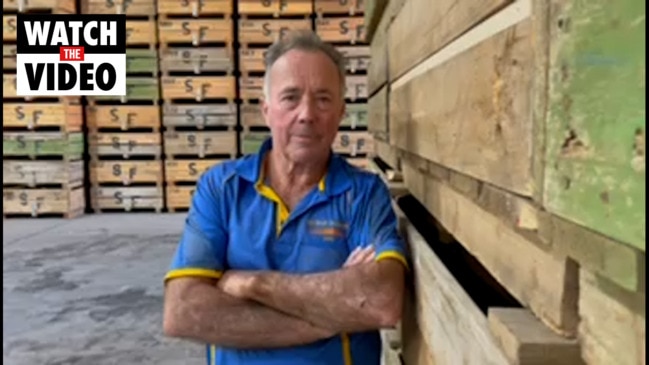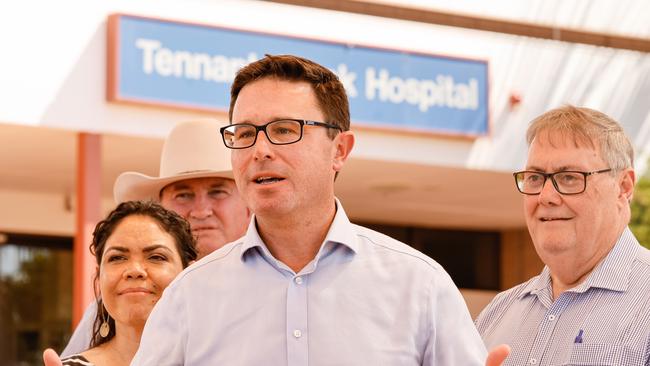$1.75m for horticulture market transparency
The Federal Government has stepped in to help fruit and vegetable farmers fight for better farmgate prices.

The Federal Government has stepped in to help fruit and vegetable farmers struggling to stay afloat amid record low farmgate prices with $654,000 for the development of an online tool to track price and volume data moving through Australia’s wholesale markets.
Another $1 million will be provided to the Department of Agriculture to investigate horticulture farmers’ production costs and margins, beginning with the apple and pear industry.
Agriculture Minister David Littleproud said the Federal Government would pay a consortium of central market operators led by Fresh Markets Australia to deliver a website that provided growers with price and volume data for all fresh fruit and vegetables that could be overlaid with historical weather data to gauge if prices farmers received were competitive.
The platform will be called FreshData and will be available within three years.
“The more perishable your goods are, the weaker your position at the bargaining table … and it’s essential that our growers get a fair price in the marketplace,” Minister Littleproud said.
“This (online platform) will mean that growers can access daily market information online about the prices of fresh fruit and vegetables, and the volume of market sales. With this investment the data lifecycle from generation to display will be only 24 hours.”
Mr Littleproud threatened last month that he would “go into bat” for fruit and vegetable farmers who were being offered prices by wholesalers and retailers that failed to cover their production costs.
He has repeatedly said at the heart of the issue was a lack of market transparency, with the nation’s major retailers privy to price and volume data they could use to their advantage.

Fresh Markets Australia general manager Gail Wood said data would be input anonymously by produce marketers, who would have to abide by a strict governance framework to ensure the system’s integrity.
“This is a great opportunity for the industry and this will be underpinned by best practice data governance and we take that very seriously,” Ms Wood said.
She said the data input would be the gross sale price the produce was sold for within the central markets. Each year about $7 billion worth of produce was sold through central markets across Australia each year, servicing cafes, restaurants, hospitals, export markets and independent retailers.
The cost to use the platform is unknown, but it is not anticipated to be free given it will have to sustain itself financially.
ABARES STUDY
Mr Littleproud also announced $1.09 million would be given to the Australian Bureau of Agricultural and Resource Economics to conduct a study into horticultural production costs, production margins and overall industry profitability.
The study will initially look at apples and pears. The pome industry is suffering from record low farmgate prices following a number of big harvests that have flooded the domestic market.
Growers are struggling to make a cent off their fruit as retailers offer prices that fall short of production costs despite repeated attempts from the industry to alert them to this fact.
Apple and Pear Australia is this week meeting with Australia’s biggest supermarkets to discuss what can be done to raise prices amid inflationary pressures affecting everything from fertiliser, labour, fuel and energy costs.
APAL’s head of government relations and advocacy Jeremy Griffith said an ABARES study would give the issue greater credibility.
“This has been a very tough season for growers. They’re just not getting returns, it’s never been tougher for these guys,” Mr Griffith said. “Having the government involved gives this a lot of credibility, just the fact that this (apples and pears) is an area of concern for the Federal Government.”
The Federal Government set aside $5.4 million to improve price and market transparency in perishable agricultural goods industries in January, which was a recommendation from the Australian Competition and Consumer Commission’s 2020 inquiry into the bargaining power imbalances in the supply chains of these industries.





